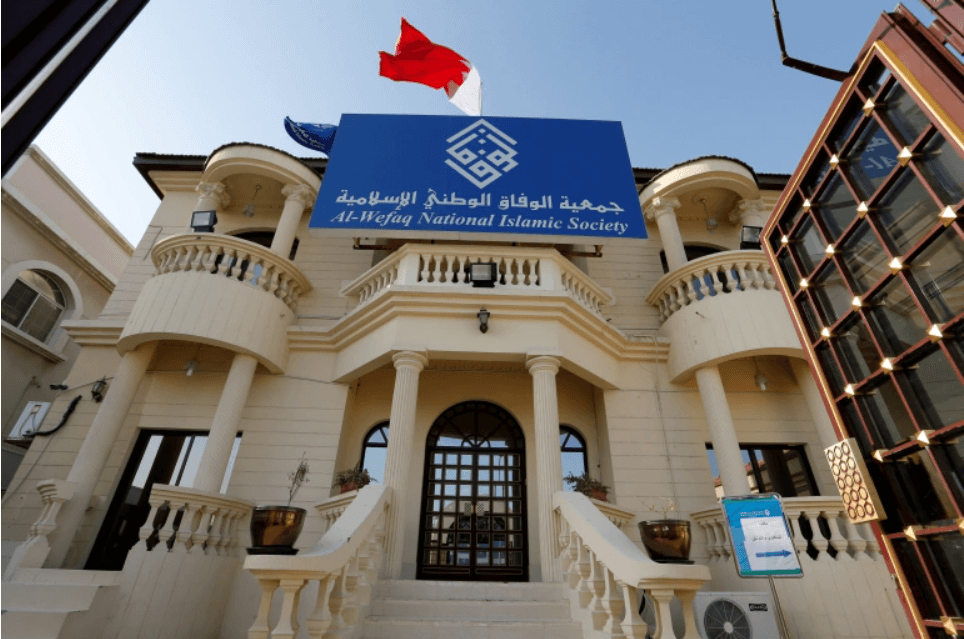Bahrain is using “political and civil isolation laws” to punish dissent and marginalise the political opposition, rights monitor Human Rights Watch (HRW) reported on Monday. The report said Bahrain is “utilising a sophisticated, legal regime aiming to strangle what remains of Bahrain’s vibrant, independent civil society.”
HRW claimed that Bahrain’s repression of civil society has taken new forms and at its centre are a series of laws enacted in 2018 to isolate its political opposition. “The façade that Bahrain’s autocratic rulers allow free and fair democratic processes has long worn away with years of repression,” it noted.
Per the report, Bahrain bans former political opposition party members from running for parliament and prevents them from being members on the boards of governors of civil organisations. Furthermore, Manama has economically restricted opposition members by either delaying or denying them ‘good conduct’ certificates, which are required for Bahraini citizens to gain employment.
The laws ban former opposition from sitting on the boards of civic orgs.
— Joey Shea (@joey_shea) October 31, 2022
For many of these orgs “more than 80 percent of the members cannot be a candidate because they were either in Wa’ad, al-Wifaq, or another organization dissolved by the court.”
Under the reign of King Hamid bin Isa Al Khalifa, Bahrain has taken various measures to curb dissent. The crackdown intensified following the 2011 ‘Arab Spring’ protests and reached its peak in 2018 following the introduction of the isolation laws, which include giving opposition members life terms in prison and excluding them from political and non-political spheres of life.
“Former prisoners are also targeted by the law, which overwhelmingly targets activists and human rights defenders,” particularly those involved in the 2011 uprising. The report estimates that somewhere between 6,000 and 11,000 Bahraini citizens face restrictions introduced by these laws.
Moreover, the laws punish even those who are merely associated with opposition groups, even if they are not members of the opposition. The report also notes that there are no time limits for bans, meaning any political organisation listed by Bahrain as the opposition is barred from political participation for life.
In this respect, HRW noted that this month’s parliamentary elections in Bahrain “offer little hope for any freer and fairer outcomes than in 2018.” A member of Bahrain’s civil society told the organisation that the political isolation laws are a “very obvious and clear declaration of the non-democratic country that Bahrain has turned into. It is impossible for Bahrain to be called a democracy.”
“Bahraini activists fear that the law will ultimately result in civil society organisations failing to […] achieve critical impact on human rights because they cannot be seen to be too critical of the authorities,” the report says.
“Bahrain has spent the last decade cracking down on peaceful opposition and the political isolation laws are yet another example of the government’s repression expanding into new spheres,” Joey Shea, a researcher at HRW, opined. “Bahrain’s once vibrant civil society and opposition coalition are being wiped out by laws codifying the government’s repression,” Shea said, adding that “no one should be under any illusion that Bahrain’s ‘democratic institutions’ are anything more than a sham.”
The 38-page report, You Can’t Call #Bahrain A Democracy: Bahrain’s Political Isolation Laws, centers on Bahrain’s 2018 political isolation laws that keep former opposition members & activists out of public office & other aspects of public life.
— LuaLuaTV (@LuaLuaEnglish) October 31, 2022
This report closely follows HRW’s scathing criticism of the process of legal recourse in Bahrain. Last month, HRW said Bahraini courts have conducted “sham trials” and relied on confessions extracted through torture to hand death sentences to civilians accused of petty crimes.
Moreover, the Bahrain Institute of Rights and Democracy (BIRD) stated in a 2021 report that the use of the death penalty in Bahrain since the 2011 ‘Arab Spring’ protests has increased by over 600%. BIRD found that since 2011, Bahrain handed capital punishment to 51 people compared to just seven before 2011.
The ‘Freedom in the World 2022’ report classifies Bahrain as “not free,” noting that although Bahrain conducts parliamentary elections, they are “neither competitive nor inclusive.” “Authorities have systematically eliminated a broad range of political rights and civil liberties, dismantled the political opposition, and cracked down on persistent dissent,” it says.

